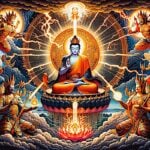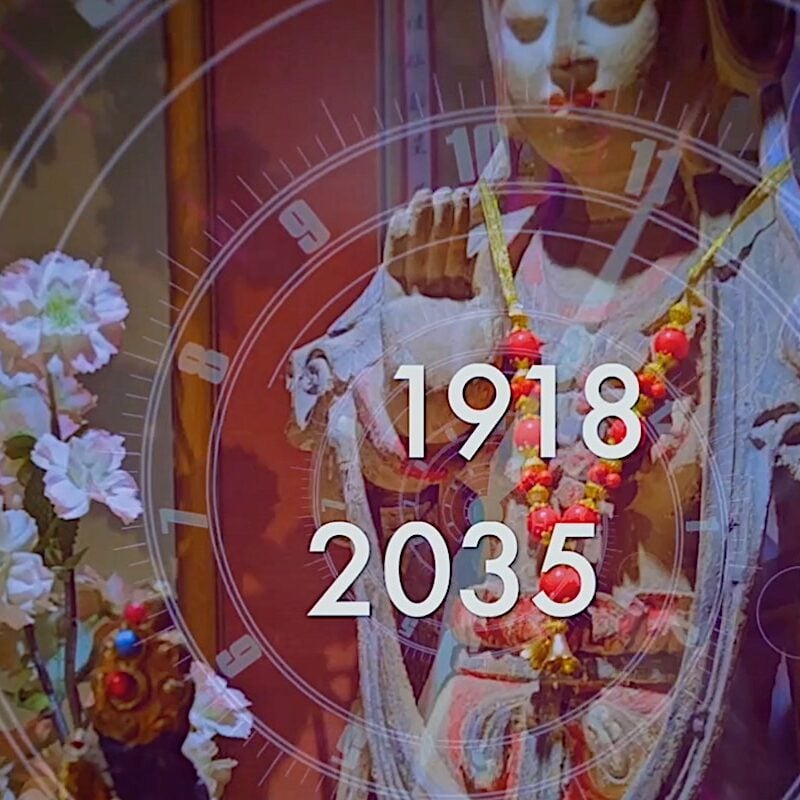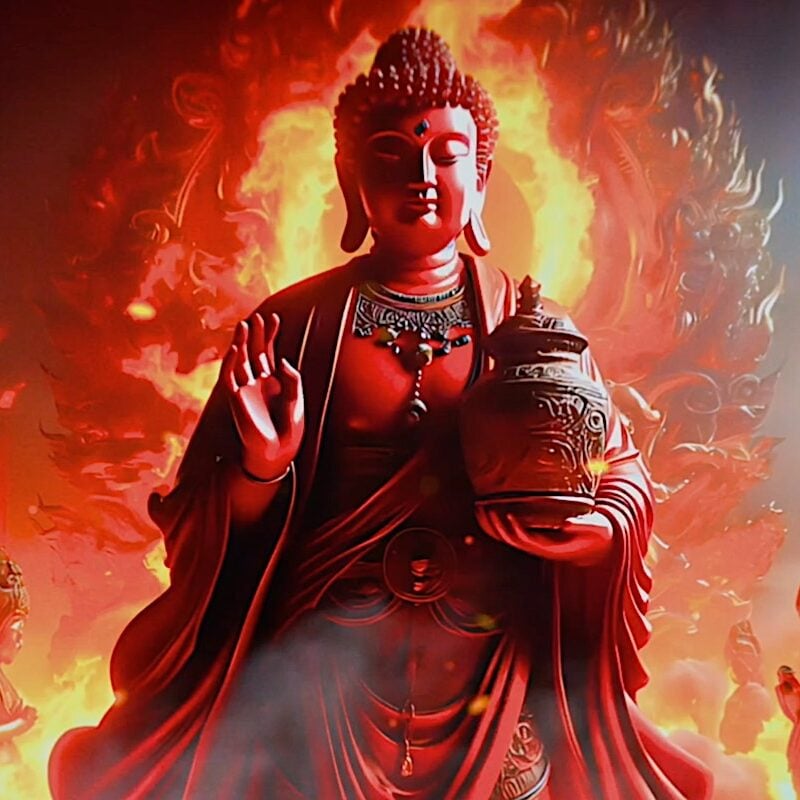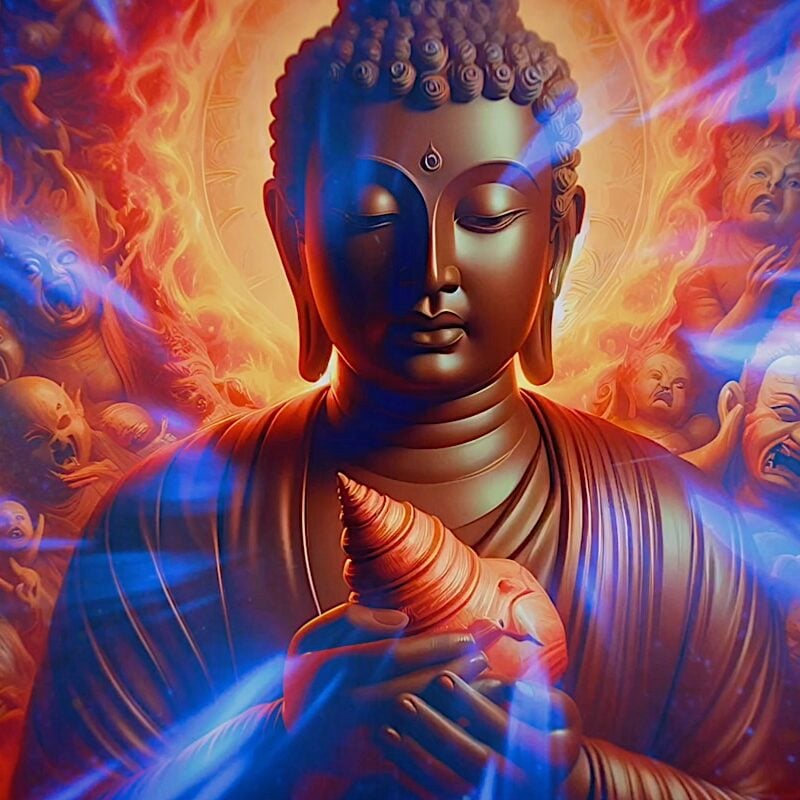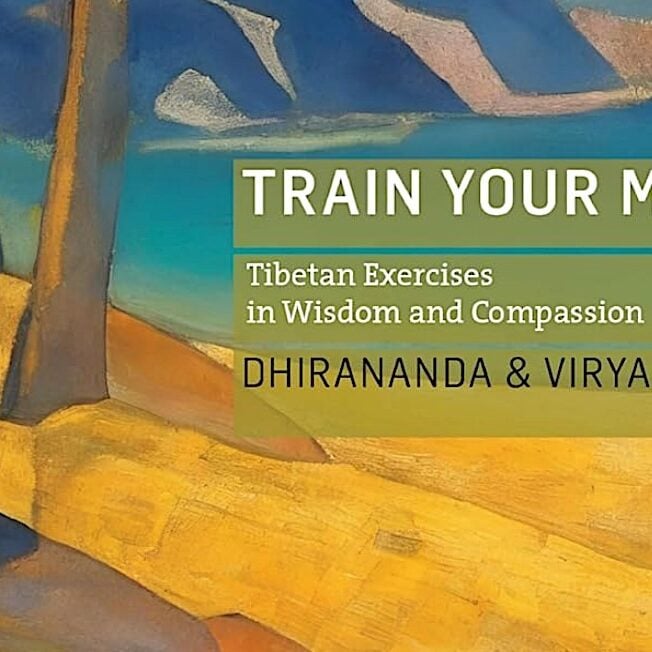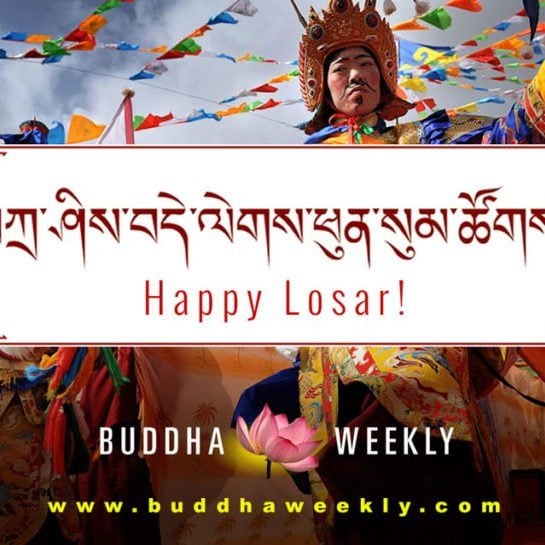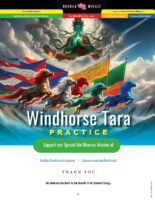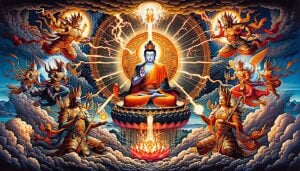Buddhist Practice: Practicing Joy in Difficult Times — Excerpt from Rebecca Li’s Allow Joy into Your Heart
IF YOU HAVE BEEN FOLLOWING THE NEWS THIS WEEK, the theme is: When are we going back to normal? When are we opening things up? As some places return to normal, there’s a lot of anxiety about when we will be able to do that.
By Rebecca Li Ph.D.
Adapted Excerpt from
Allow Joy into Our Hearts
Don’t miss our interview with author Rebecca Li Ph.D. here>>
In the course of your practice, you may notice that you are holding on to this idea; that the way we lived a few weeks ago (early March feels like lifetimes ago now!)—at least here in North America, but actually all over the world—where we were able to do things and hang out with people and go to the theater and things like that, is the way things are supposed to be. So now we are just temporarily living outside of what’s normal, and we are waiting to go back to that life.
As an Amazon Associate, Buddha Weekly may earn from qualifying purchases.
Thinking this way is going to cause a lot of suffering. Some of you might remember that suffering—dukkha in Pali—can be explained as unsatisfactoriness. Dukkha is caused by our habit of reacting with vexations to what is going on. What are vexations? One of them is craving—craving for more of what we like. That was normal, I want that back. I want that old life back. Hanging out, shopping, socializing, whatever it is, I want it back. I’m craving that. Or aversion, the other side of it; aversion to what is going on, aversion to reality as it is now—a very different reality from the way it was a few weeks ago.
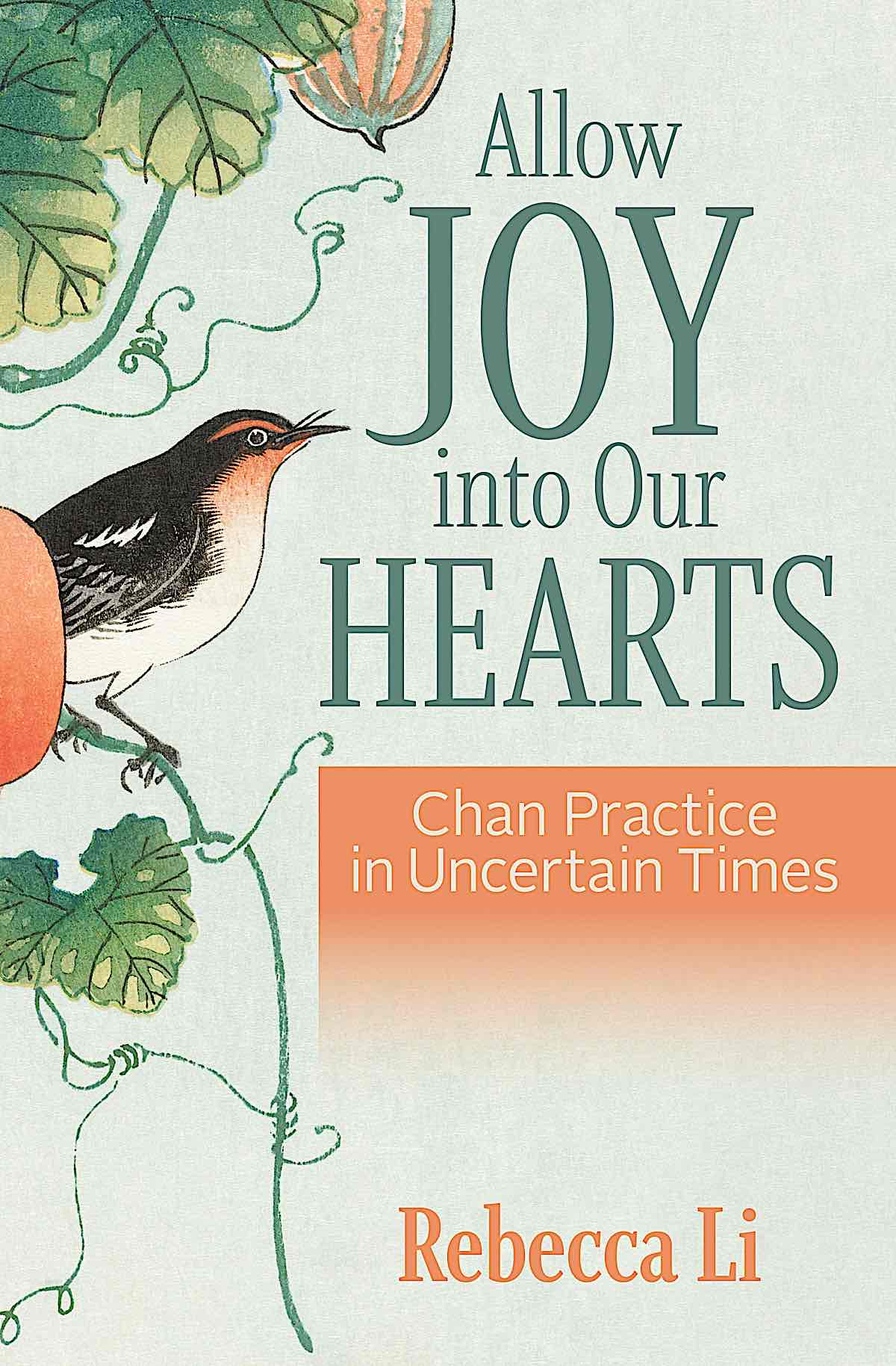
Allow Joy into Our Hearts: Chan Practice in Uncertain Times available at Amazon.
NOTE: As an Amazon affiliate, Buddha Weekly may earn from qualifying purchases, without impacting the price you pay.
Another vexation, and the one I would like to talk about today, is fundamental ignorance. Fundamental ignorance does not mean that we are stupid. It’s referring to the habit of not having clarity about the true nature of reality. What’s the true nature of reality? That every moment we experience is the coming together of many, many causes and conditions, and these causes and conditions—every single one of them—are changing because they are themselves also conditioned by layers and layers of things we don’t even think about.
That’s why the world is constantly changing, even though we don’t see it. I get up, I drive my car, I go to work, and I’ll be able to do that again tomorrow, and again next week. In the summer I have my vacation. That’s my life, that’s the world we live in. Before this pandemic hit, we were able to hang out with our friends and our family, go to restaurants, have big parties, whatever we do to have fun. We had this whole world that we took for granted, and we believe that is how it’s supposed to be, that’s how we are supposed to be able to live.
We expect to just be able to go to ball games, concerts, the theater, all kinds of large gatherings. People buy tickets and just go; that’s what’s supposed to happen. That’s our world. That’s our life. We don’t think about having to worry about getting a virus.
So we take our world for granted, without thinking about all of the causes and conditions that make that kind of life possible. For example, that we live in a peaceful time—we are not at war. Ask the people who live in a war zone. They don’t expect to be able to hang out with their friends and family and not worry about anything.
We take for granted all the causes and conditions that come together moment after moment that make these activities, make our world, make our life possible. But now we see that one thing—only one thing, a microscopic coronavirus— shows up and it changes all the causes and conditions.
We can make use of our practice to cultivate more clear awareness of the causes and conditions that make the present moment possible. For example, I can tell you I love going to the ballet in New York City, and every time I go there I think, Wow, these people have to work so hard for years and years so they can become such wonderful dancers and put on this performance. The performance is not happening just because I bought the ticket and showed up. All those people who work backstage, all the people who buy tickets and go, and many other things, including that we have a decent public health situation, make it possible for me to enjoy the ballet. It’s not just our life— what we are doing—but the world we live in, which is part of our life. Everything, every moment, is the coming together of many, many causes and conditions.
Just the simple activity of being able to get together with our family and friends and being able to hug each other— who knows when we’ll be able to do that? I know someone who called his family to say, I won’t see you for eighteen months. I’m not going to go anywhere until there is a vaccine. Of course, he is optimistic, thinking we are going to have a vaccine in eighteen months, but what he’s pointing out is that one of the conditions for being able to visit our families is that it’s safe for everyone involved to gather.
So the fact that we are able to get together with one another is also due to the fact that we have immunity in our bodies to protect us from a potentially deadly virus. For the past 100 years, we haven’t thought about this often because we’ve had vaccines, but 100 years ago people had to think about that all the time. Even today, people who just came out of cancer surgery, who are undergoing chemotherapy, whose immunity is compromised, they have to be careful with whom they meet. They can’t get too close to other people because their immunity is compromised. That is their normal.
And safety is not just about public health. Earlier I mentioned that we are not living in a war zone. Ask people who have lived through a war. One of my practitioners told me, My ninety-year-old mother tells me, “Don’t freak out, it was way worse in World War II.” So for us here, at least there are no bombs. We take political stability for granted. Of course, being able to gather with everyone in someone’s home, that assumes there is a home and everyone has the financial conditions to travel. All of those may not be so easy to come by—especially with the economic conditions caused by the pandemic. Again, causes and conditions. So if we sit here and think that this new normal is so horrible, I hate it, I just want to go back to my old life … suffering. We create suffering by giving rise to aversion to what is going on. This is the present moment, this is the reality. Resisting it, giving rise to aversion to it, wanting back the moment that’s gone because we fixed it in our mind and think that’s how the world is supposed to be—that is suffering. And fundamental ignorance—not seeing that every moment is the coming together of many, many causes and conditions—creates more suffering.
How do we use this Dharma teaching to move forward? Well, some of you talked about the “new normal.” What that means, I don’t know. We’ve been living it for four months here in the United States; my family in Hong Kong has been living it since January, and they haven’t been sheltering at home. So what do you do? Well, every time you encounter someone, your family, maybe strangers, you have a clear awareness of where you are, who you’re with. I’m not talking about being paranoid, but more a sense of Where am I? I am in an elevator, I am with this person. Having this clear awareness is, Am I in a situation where I might be exposed to the virus? What can I do to minimize the risk for everyone?
Don’t miss our interview with author Rebecca Li Ph.D. here>>
As an Amazon Associate, Buddha Weekly may earn from qualifying purchases.
Also on Indiebound, Kobo and Barnes & Noble now.
- Publisher : Winterhead Publishing (March 1, 2021)
- Publication date : March 1, 2021
- Language : English
- Paperback : 142 pages
- ISBN-10 : 1954564007
- ISBN-13 : 978-1954564008
Excerpt adapted from Allow Joy into Our Hearts: Chan Practice in Uncertain Times. Copyright © 2021 by Rebecca Li. Reprinted with permission. All rights reserved.
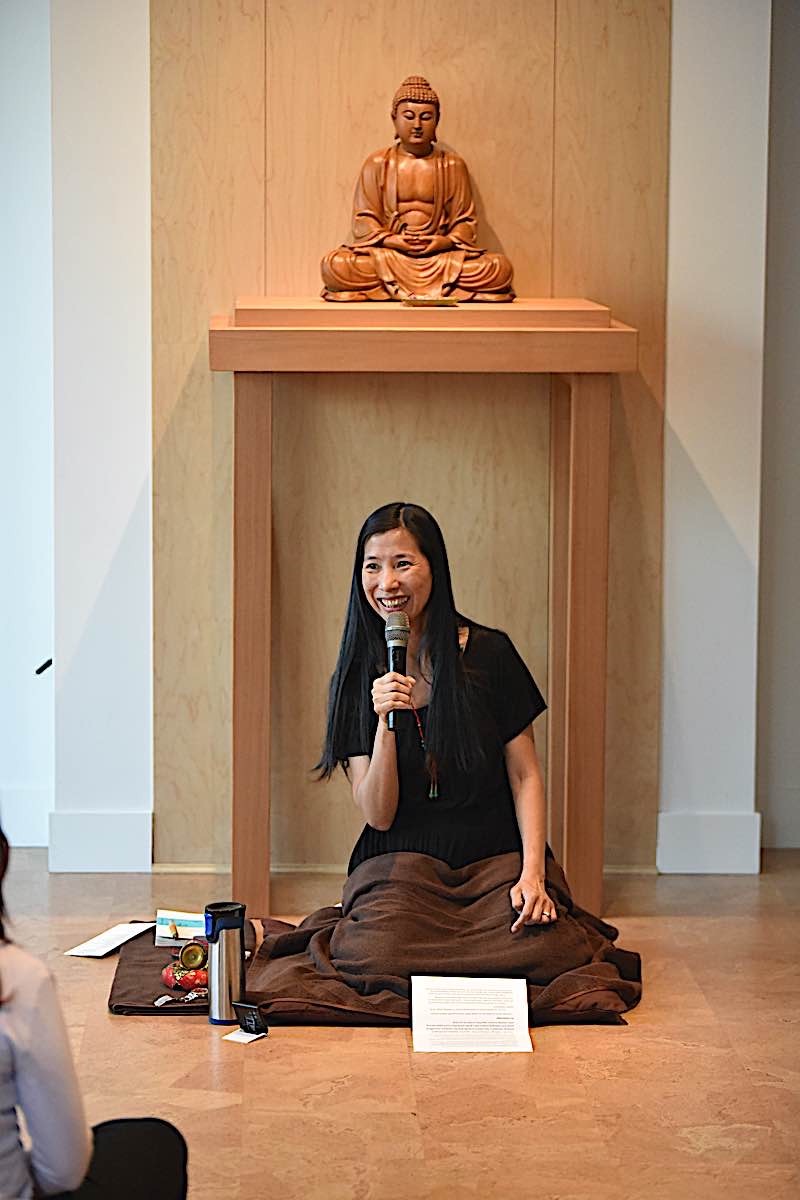
About the Author
Rebecca L, Ph.D., is a teacher of Chan Buddhism in the lineage of Chan Master Sheng Yen. She is the founder and guiding teacher of Chan Dharma Community, a Chan Buddhist practice and study community made up of individuals committed to cultivating wisdom and compassion for the benefit of all beings. She has two decades of Dharma and meditation teaching experience and has been invited to lead retreats or teach at Buddhist centers in North America, Europe, and Asia. Rebecca is one of the founding board members of The GenX Buddhist Teachers Sangha where she continues to serve as a board member. Rebecca has published and been featured in several Buddhist publications, including Tricycle, Lion’s Roar, and Buddhadharma. Rebecca is a sociology professor and lives with her husband in New Jersey. Her talks, guided meditation, and calendar of events can be found at www.rebeccali.org.
Don’t miss our interview with author Rebecca Li Ph.D. here>>
More articles by this author
Search
Latest Features
Please support the "Spread the Dharma" mission as one of our heroic Dharma Supporting Members, or with a one-time donation.
Please Help Support the “Spread the Dharma” Mission!

Be a part of the noble mission as a supporting member or a patron, or a volunteer contributor of content.
The power of Dharma to help sentient beings, in part, lies in ensuring access to Buddha’s precious Dharma — the mission of Buddha Weekly. We can’t do it without you!
A non-profit association since 2007, Buddha Weekly published many feature articles, videos, and, podcasts. Please consider supporting the mission to preserve and “Spread the Dharma." Your support as either a patron or a supporting member helps defray the high costs of producing quality Dharma content. Thank you! Learn more here, or become one of our super karma heroes on Patreon.
Lee Kane
Author | Buddha Weekly
Lee Kane is the editor of Buddha Weekly, since 2007. His main focuses as a writer are mindfulness techniques, meditation, Dharma and Sutra commentaries, Buddhist practices, international perspectives and traditions, Vajrayana, Mahayana, Zen. He also covers various events.
Lee also contributes as a writer to various other online magazines and blogs.






